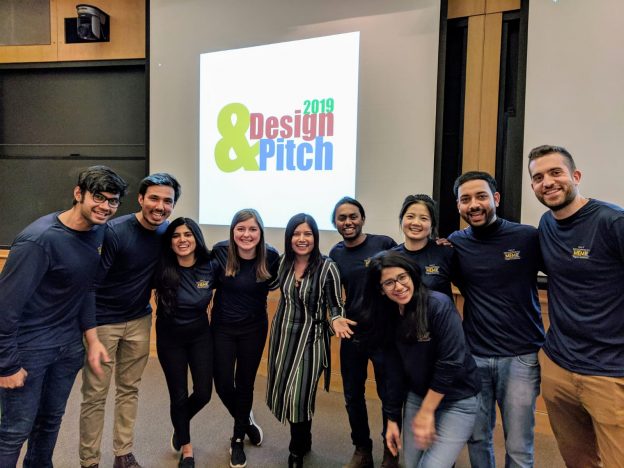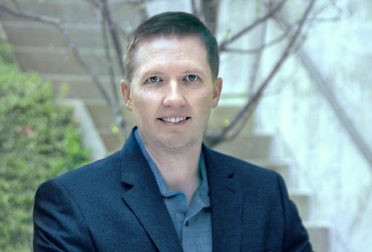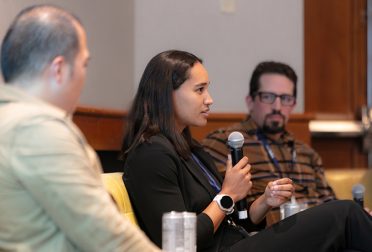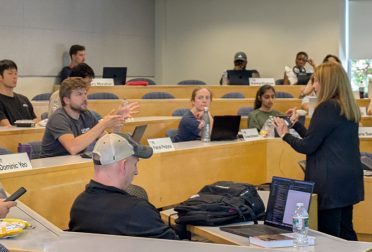MIT hosted the first-ever Design & Pitch Competition for the Master of Engineering Management Project Consortium (MEMPC) on April 12, 2019. The competition combined elements of design challenges for engineering students with the type of business pitch contest commonly held for MBA students into a single competition that challenged students to combine their engineering and business skills.
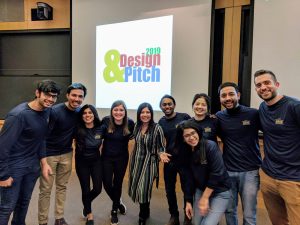
Student volunteers from the consortium—a group of nine universities that work together to promote degrees in engineering management, share best practices, and increase recognition of engineering management as a field—organized the preliminary stages of the competition and ran the event.
The event featured teams from seven of the consortium schools, including MIT, presenting concepts for a sustainable energy solution for a model city in an afternoon session. A panel of engineering management alumni judged the competition.
Rutu Manchiganti, executive director of MEMPC and an alumna of MIT System Design and Management (SDM), introduced the competition’s goals. “We designed this event to build community among the engineering management students across the schools in the consortium, to allow them to build their skill sets in both design and management, and to engage alumni with current students and the consortium as a whole,” she said.
Alumni judges included Dean Adams, a Dartmouth graduate with experience at IBM who currently leads a patent law firm; Mohit Daga, also of Dartmouth and a senior product portfolio manager at Dassault Systèmes; and Timothy Fu, director of product management at FirstFuel Software and an alumnus of Cornell. Three SDM alums also joined the judging panel: Carlos Perez Damas and Scott McCarthy, senior system architects at Shell TechWorks, and Mario Montoya, a regional lead for Siemens Power and Gas.
The judges posed as the board of MEMCo, a fictional company looking for a transformative plan to enable the imaginary city of Utopia to draw more than half its energy from renewable sources by the year 2030. The student teams gave multimedia presentations offering a variety of approaches to creating a long-term, sustainable, renewable energy portfolio for the city.
Team Gaia from Cornell, for example, highlighted a new technology that captures the vibration from wind passing office buildings in dense urban environments as an additional source of wind-generated power. Team Gaia, which had assistance from the Cornell Center for Technology Licensing, also included anaerobic digestion in wastewater treatment for heat generation in its plan. The team earned the “Most Sustainable” honor from judges.
SDM’s own Pareto Pioneers won the “Most Creative” award with a presentation focused on the complex flow of values in the system. The SDM team included plans for a software model that would build a tradespace for evaluating existing technologies.
The overall winner was 4 Guys Consulting from Duke University, a team that focused on solar farming and improving an existing energy grid by adding battery technology to better capture generated power to meet demand at peak times. Mario Montoya of Siemens noted that the judging panel was impressed by all the presentations, saying they were “fantastic.”
SDM congratulates the winners and thanks all the student teams, the organizers, and the alumni judges for joining us in Cambridge for this special event.

